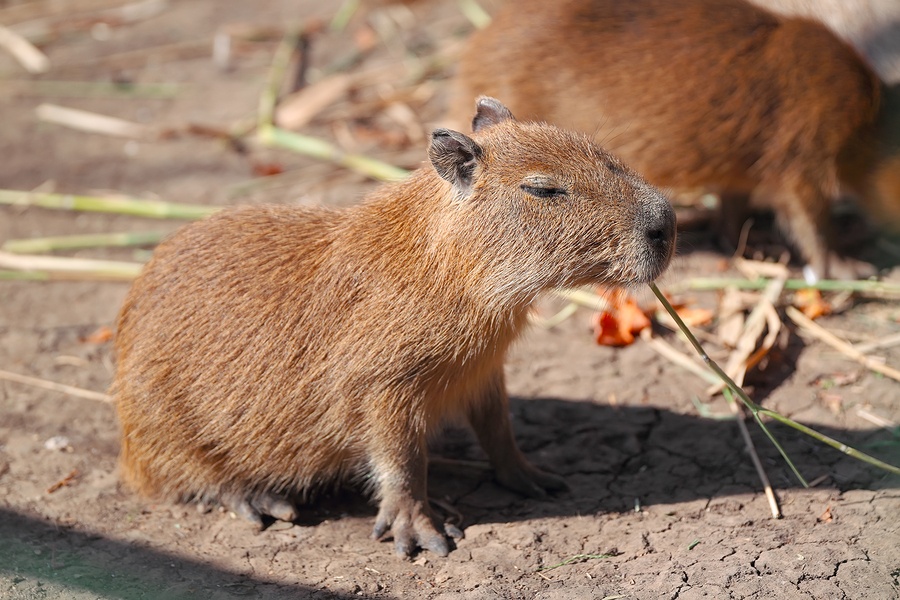Table of Contents
Capybara pet care is pretty similar to care for most types of rodent pets, such as guinea pigs, except from the fact that capybaras are significantly larger, which means they steps, methods and procedures are done on a larger scale. As with other animals, they have different Capybara pet care requirements to stay healthy and happy, from housing, feeding, socialization and health maintenance. Young ones require more time and care. If you’re looking for more tips on Capybara pet care , then this post is for you.
Housing
Housing is one the first aspects you need to consider when you decide to own a capybara. Young capybaras can be either an outdoor or indoor pet. The most important thing is they have plenty of space to move and run around. Also, they’re semi-aquatic animals, which mean they need easy access to water, preferably a fresh tank to swim. They also use water to keep their skin cool and moist.
They don’t like confrontation with other animals or smaller children, but they can be very territorial. If you have kids at home, then you should definitely house your capybaras outside. Since they’re naturally found in South America, capybaras are adapted to warmer temperature. An outdoor kennel is one of the best ways to house this animal, just make sure there’s a pool of water within it and a good shelter where they can move out and in different weather conditions. For cold seasons, you will need an enclosed and heated area to keep them comfortable.
You can also provide a heat lamp for the crucial first months, to help the young and smaller ones maintain healthy body heat.
Feeding
As with other pets, feeding and watering are very crucial for capybaras health. You should know that capybaras are herbivores by nature, which means they should be fed with plenty of fresh grass and hay. You can also vary their food with packaged rodent food so the get enough vitamins and minerals. They also enjoy fresh vegetables and fruits. Make sure you don’t give them sweet fruits, as even naturally-occurring sugar can be bad for their health. There should be abundant supply of fresh water too.
Health Issues
As a capybara owner, you should know the common different health issues for this animal, as it will help you see the signs and symptoms and know when to seek for vet’s help. Generally, capybaras have quite high immune system, but since they love to play rough and quite clumsy, they can get bumps, bruises and even small cuts. These issues can be treated with antibiotic ointment and can be left uncovered to let heal naturally.
Like most rodents, broken teeth are a common issue among capybaras. This may suggest lack of vitamin C. You can supplement vitamin C in their diet. Last but definitely not the least, capybaras will always requires positive attention from their owner, especially baby capybaras. The young ones must be kept indoors for a couple of months, so they can play and graze safely.






 Author and long-time animal lover. Sharing knowledge on pet care through experience and the written word.
Author and long-time animal lover. Sharing knowledge on pet care through experience and the written word.